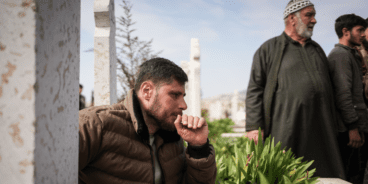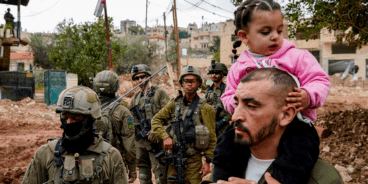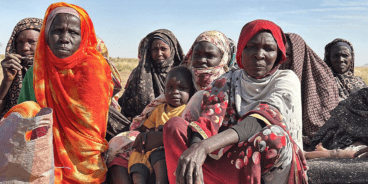
Atrocity Alert No. 85: Yemen, Syria, Myanmar (Burma) and Democratic Republic of the Congo
Atrocity Alert is a weekly publication by the Global Centre for the Responsibility to Protect highlighting situations where populations are at risk of, or are enduring, mass atrocity crimes.
1,000 Days of War and Atrocities in Yemen
Today, 20 December, marks 1,000 days since a military coalition led by Saudi Arabia and the United Arab Emirates responded to a request by the government of Yemen for regional military intervention. The UN estimates that at least 5,500 civilians have been killed since March 2015, although accurate reporting is impossible and the actual death toll is considered to be much higher.
All parties to Yemen’s multi-sided armed conflict have perpetrated indiscriminate attacks on civilians. The destruction of water and medical infrastructure has also led to the largest cholera outbreak in modern history. Despite 1,000 days of war, there are no signs of the violence abating. According to the Office of the UN High Commissioner for Human Rights, 136 civilians were killed in airstrikes in Sana’a, Sa’ada, Al Hudaydah and Taizz governorates between 6-16 December alone.
Meanwhile the illegal blockade of Yemen’s ports continues. Imposed by the Saudi-led coalition since 6 November, the blockade has caused critical shortages of life-sustaining supplies, including commercial imports of food and fuel. Although the blockade was partially lifted on 23 November to allow for the delivery of some humanitarian aid, Yemen relies on commercial imports for up to 90 percent of its food. As a result, the number of people at risk of famine has now increased to 8.4 million. An estimated 22 million people – over three quarters of the population – require humanitarian assistance to survive.
On 19 December over 400 representatives of civil society, academia, government and the entertainment industry, including Jan Egeland, Gareth Evans, Shirin Ebadi and the Executive Director of the Global Centre for the Responsibility to Protect, Dr. Simon Adams, demanded that the UN Security Council facilitate an immediate ceasefire, end the blockade, and reinvigorate peace talks. Indiscriminate attacks on civilian areas and deliberately depriving starving civilians of access to food constitute war crimes and crimes against humanity under international law. The people of Yemen cannot wait any longer for the international community to act.
Under Siege in Eastern Ghouta
Although the besieged enclave of eastern Ghouta was declared one of four “de-escalation zones” in Syria earlier this year, UNICEF has recently reported the deaths of scores of civilians and the closure of most schools in the area due to increased fighting. According to the UN Humanitarian Adviser for Syria, Jan Egeland, 494 people are in need of urgent medical evacuation to nearby hospitals in Damascus, including 137 children. Sixteen patients have already died while awaiting safe passage.
At least 393,000 civilians in opposition-held eastern Ghouta have been besieged by Syrian government forces since 2013. As a result, approximately 12 percent of children under five years old are suffering from acute malnutrition – the highest rate recorded in Syria since the start of the civil war.
Tomorrow, 21 December, marks the anniversary of the UN General Assembly passing a resolution creating the International, Impartial and Independent Mechanism (IIIM) to assist in the investigation and prosecution of atrocity perpetrators in Syria. The establishment of the IIIM represented the General Assembly’s unwillingness to accept the failure and inaction of the UN Security Council, and challenged the climate of impunity that has persisted in Syria throughout six years of civil war.
Although the IIIM cannot end the suffering of Syria’s people, it can help ensure that the perpetrators of war crimes and crimes against humanity in Syria will eventually face justice. This includes those responsible for ongoing atrocities in eastern Ghouta. All UN member states should cooperate fully with the IIIM through the provision of voluntary funding and technical assistance.
More Mass Graves and Burned Villages in Myanmar (Burma)
Since 25 August more than 646,000 ethnic Rohingya have fled from Rakhine State to Bangladesh following the start of so-called “clearance operations” by Myanmar’s security forces. On 12 December Médecins Sans Frontières (MSF) reported that based on its research, an estimated 6,700 Rohingya, including at least 730 children under the age of five, were killed within the first month of these operations.
As the Myanmar authorities continue to block independent media and UN investigators from visiting Rakhine State, the military announced on 18 December that it was conducting an investigation after a mass grave was discovered in Inn Din village. Similar investigations previously conducted by the military have been condemned for lacking rigor and credibility.
Although the government of Myanmar claims that “clearance operations” ended on 5 September, Human Rights Watch recently released new satellite imagery revealing that at least 118 Rohingya villages have been partially or completely destroyed since that date, bringing the total number of affected Rohingya villages to 354. Moreover, analysis shows that dozens of buildings were burned down during the week of 20 November, while the governments of Myanmar and Bangladesh were signing the “Arrangement on Return of Displaced Persons from Rakhine State.”
This evidence, and the ongoing denial of access to the UN and international humanitarian organizations attempting to investigate conditions in Rakhine State, makes it impossible to guarantee the safe return of refugees.
As credible allegations of genocide against the Rohingya continue to mount, the UN Security Council should demand access for UN representatives to Rakhine State, including Special Rapporteur Yanghee Lee. Meanwhile all UN member states should impose an arms embargo on Myanmar and targeted sanctions on those members of the security forces directly responsible for atrocities committed in Rakhine State.
Accountability for Mass Rape in the Democratic Republic of the Congo
Last Wednesday, 13 December, eleven men from the “Army of Jesus” militia and their leader, Frederic Batumike – a member of the regional parliament in the Democratic Republic of the Congo (DRC) – were convicted of crimes against humanity. The men were all sentenced to life in prison for the mass rape, and in some cases murder, of 37 girls between 18 months and 11 years of age in Kavumu, South Kivu, from 2013-2016. Rehabilitation for the victims will be facilitated through reparations granted by the court.
The Kavumu trial marks the first time an elected official in the DRC has been found guilty of crimes perpetrated by a militia he controlled. The trial also marked a significant achievement for civil society activists who have campaigned for the Kavumu victims. As noted in a Joint Statement by the UN Special Representatives for Sexual Violence in Armed Conflict and for Children and Armed Conflict, “the case demonstrates that when there is political will, well-trained government officials, civil society involvement, and an engaged press, there can be justice for sexual violence.”
The conviction of Batumike and his men sends a powerful message to other atrocity perpetrators in the DRC. It is essential that the government now use the precedent set by this judgment to ensure that all perpetrators of sexual violence and mass rape are held accountable for their crimes.


Atrocity Alert No. 428: Israel and the Occupied Palestinian Territory, Myanmar (Burma) and Ukraine
